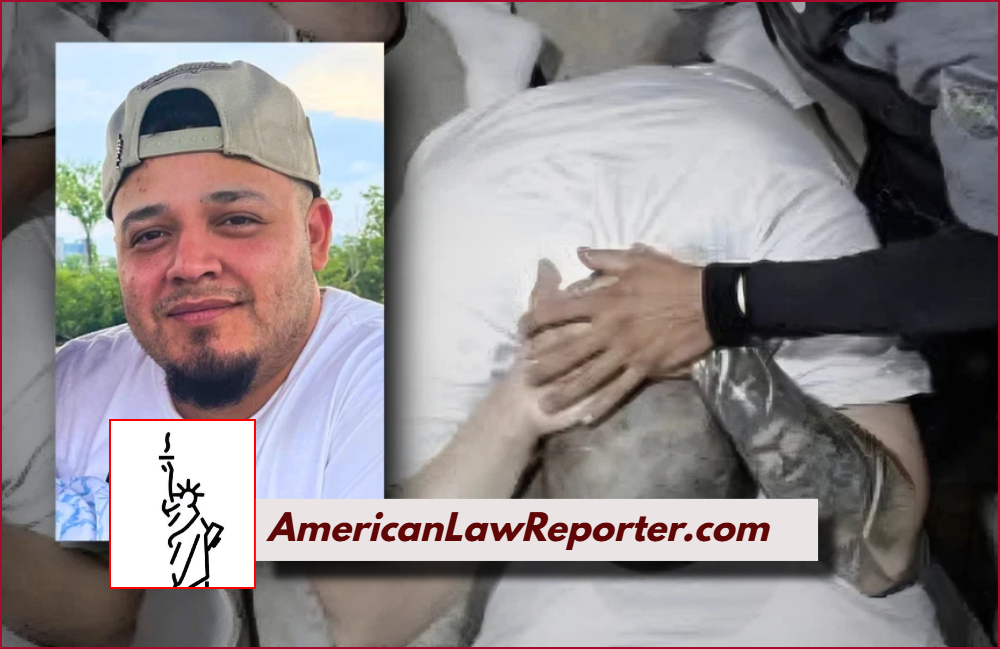In a major turnaround, the U.S. Department of Justice has formally acknowledged that the deportation of Kilmar Abrego Garcia to El Salvador was “an administrative error,” contradicting prior public statements from Trump administration officials.
The admission, made in a court filing Sunday, July 6, marks the latest development in a closely watched civil case pending in the U.S. District Court for the District of Maryland.
Abrego Garcia, a Maryland father and accused gang affiliate, was deported in violation of a legal order that had granted him withholding of removal. After months of litigation and national scrutiny, he was returned to the United States last month. Now, the DOJ is seeking to dismiss his civil suit, arguing that the relief requested has already been granted.
“The removal of Abrego Garcia to El Salvador without first terminating his withholding of removal… was a one-off mistake,” the nine-page DOJ filing reads. “The Government has now remedied [the error].”
Government Reverses Course, Disputes Pattern

The filing aims to counter the plaintiffs’ argument that the case remains active under the legal doctrine of voluntary cessation, which allows litigation to continue if a government agency stops illegal conduct only because of a lawsuit—and may resume it later.
But the DOJ now asserts that no such risk exists in this case.
“Presuming that the Government would remove Abrego Garcia to El Salvador again without first terminating the grant of withholding of removal… defies logic,” the filing states.
This explanation directly conflicts with earlier comments by Stephen Miller, the former White House deputy chief of staff, who in April insisted the deportation was deliberate.
“He was not mistakenly sent to El Salvador,” Miller said during an interview with Fox News. “This was the right person sent to the right place.”
That assertion has now been effectively walked back, with the DOJ calling the deportation “an isolated mistake” and denying any broader “pattern or practice” of similar removals.
Fallout Inside the DOJ
The handling of Abrego Garcia’s case has already resulted in internal personnel consequences. Erez Reuveni, a career Justice Department lawyer, admitted during a hearing earlier this year that Abrego Garcia was wrongly deported, prompting immediate pushback from political leadership.
“Mr. Abrego Garcia should not have been removed,” Reuveni told U.S. District Judge Paula Xinis. “He should not have been sent to El Salvador.”
Soon after, Attorney General Pam Bondi placed Reuveni on administrative leave and later confirmed his termination, stating he had failed to “vigorously advocate” on behalf of the government’s position.
“Our client in this matter was Homeland Security… He shouldn’t have argued it, if that’s what he was going to do,” Bondi said in a public statement.
Claims of Torture and Psychological Abuse
In a newly filed amended complaint, Abrego Garcia’s attorneys allege that he endured horrific conditions while held at CECOT, El Salvador’s mega-prison. The complaint describes “severe beatings,” “psychological torture,” and prolonged detention in dehumanizing conditions.
CECOT—officially known as the Terrorism Confinement Center—has been widely criticized by human rights groups for its overcrowded conditions and use of extreme confinement measures.
While Abrego Garcia has since been released and indicted in the U.S. on federal charges related to the unlawful transport of migrants, his legal team maintains that the government must still be held accountable for what occurred.
“This is not just about one person,” one of his attorneys told the court last week. “This is about a system that permitted a violation of due process and international legal obligations.”
Broader Legal Implications
In late June, a federal appeals court also ordered the government to facilitate the return of another migrant who was unlawfully deported to El Salvador in violation of a standing court order—highlighting broader concerns about compliance with legal protections in immigration enforcement.
The upcoming hearing before Judge Xinis, scheduled for Monday, could determine whether the case proceeds or is dismissed based on the DOJ’s mootness claim.
If the case is allowed to continue, it could set legal precedent regarding federal accountability for erroneous deportations and the limits of voluntary cessation in immigration litigation.
Legal Analysis:
The DOJ’s admission in the Abrego Garcia case signals a significant legal and political shift—one that invites scrutiny of the administrative failures behind immigration enforcement practices. The court’s forthcoming decision on mootness could clarify when and how federal agencies may be held liable for violating statutory and constitutional protections, even after attempting to reverse course.

